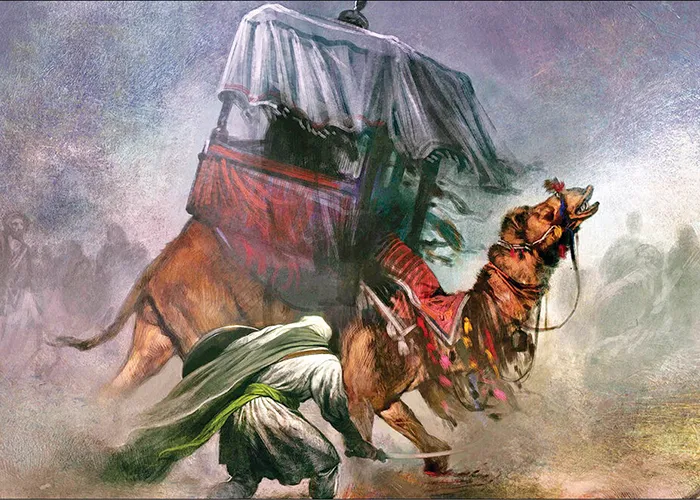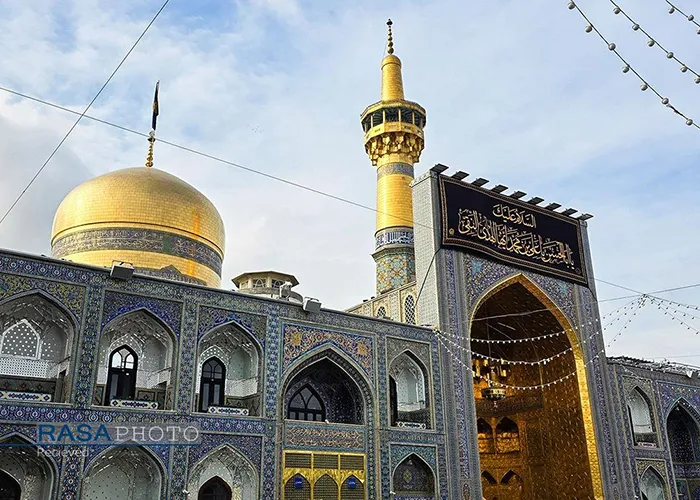Events of the Week – Volume01 Issue24
4th December 2024 – 11th December 2024
5th December (3rd Jumada al-Thani)
Martyrdom of Hazrat Fatima Al-Zahra (peace be upon her) (11 AH)
Hazrat Fatima Al-Zahra (as), the daughter of Prophet Muhammad (s), passed away just months after her father’s death. According to Shia accounts, her final days were marked by political struggles following the Prophet’s demise. The attack on her home by individuals seeking Imam Ali (as) to pledge allegiance to the first caliph left her severely injured. Historical records describe how the injuries from this event contributed to her untimely death. She was buried secretly at night in Medina, as per her will, to signify her disapproval of certain actions taken by the rulers after the Prophet’s death. The exact location of her grave remains unknown, a mystery that continues to evoke sorrow and a symbol of her stand for Wilayah.
11th December (10th Jumada al-Thani)
The Battle of Jamal (36 AH)
This battle was fought near Basra between the forces of Imam Ali (as) and a faction led by Aisha bint Abu Bakr, Talha ibn Ubaydullah, and Zubair ibn al-Awwam. The conflict arose from disagreements over how to address the murder of the third caliph, Uthman ibn Affan. Imam Ali moved to Basra to confront the rebellion. The battle is named after the camel upon which Aisha rode, which became the focal point of the fighting. Imam Ali’s forces ultimately prevailed, and Zubair and Talha were killed. Aisha was captured but treated with respect and sent back to Medina. The battle left thousands dead and is regarded as a significant turning point in early Islamic history. Imam Ali showed compassion to his opponents, particularly ensuring the safety and dignified treatment of Aisha. For Shia Muslims, the battle reflects the challenges of preserving unity and justice amidst dissent and highlights Imam Ali’s wisdom and mercy as a divinely guided leader.
11th December
Martyrdom of Ayatollah Dastgheib (1981 CE / 1360 AH)
On 11 December 1981, Ayatollah Abd al-Husayn Dastgheib was assassinated by the MEK Munafiqeen in Shiraz, Iran, while walking to Friday prayers. Known for his scholarly works and leadership in Shiraz, he was a key figure in promoting Islamic teachings and resisting corrupt ideas in society. A suicide bomber targeted him, leading to his martyrdom alongside several companions. His death was part of a series of targeted assassinations aimed at destabilising the Islamic Revolution in Iran. Ayatollah Dastgheib’s most notable works, such as The Greater Sins and The Hereafter, provide deep insights into Islamic ethics, spirituality, and eschatology, emphasising self-purification and moral conduct. His life exemplified the Quranic verse:
قُلْ هَلْ يَسْتَوِي الَّذِينَ يَعْلَمُونَ وَالَّذِينَ لَا يَعْلَمُونَ
“Are those who know equal to those who do not know?” (Surah Az-Zumar, 39:9).
His legacy inspires the pursuit of knowledge and justice, urging us to remain steadfast in upholding truth and righteousness.
editor's pick
news via inbox
Subscribe to the newsletter.




